OBJECTIVES
The Master in Art Therapy aims to prepare art therapists to be able to practice the profession inside and outside of Spain. For this reason, the essence of the course lies in clinical practices and supervision sessions. Students will acquire diverse conceptual tools, utilizing them in art therapy projects in institutions in both the public and private health networks, education centers and social assistance centers. In total, the Master’s students carry out 600 hours of clinical practice in addition to 160 hours of supervision.
In the Master’s, practical and theoretical knowledge acquired during the postgraduate (Advanced Diploma in Art Therapy) training as well as in the path of self-knowledge through the artistic processes, is reinforced and consolidated.
Throughout the program, students specialize in one area of therapeutic work while acquiring the necessary knowledge to work in other specific areas. These areas range from art therapy in mental health contexts and special education, to childhood, adolescence, and the elderly, as well as in the prison population, etc.
MODULE 1: ART THERAPY (34 ECTS)
ART THERAPY TRAINING GROUPS (27 hours)
The objective of experiential group art therapy is to explore the dynamics of a group in which images and art objects are produced. Students remain in the same small group throughout the two years of the Master’s program.
The session is divided divided into two parts: first, the students create, then, they generate a dialogue around these creations. Guided by a facilitator, the participants discover, little by little, through the experience of creating, some of the situations that give name to the different concepts that form the theory of art therapy. The role of the leader of the group is to help the members be the ones who explore and reveal the dynamics that occur within the interactions of the group.
OBSERVATION AND EXPRESSION TECHNIQUES (27 hours)
This is an extension of the experiential art therapy groups, with the objective of approaching psychotherapeutic work through observation, reflection and communication. The composition of the groups and their leaders are the same as in experiential art therapy groups. Students meet in this group for a monthly session.
The objective of this session is to acquire skills when observing situations or artistic processes, reflect on what is observed, whether the object of observation is oneself, the other, or a group situation, and explore creative ways to communicate our experience to others.
THEORY OF ART THERAPY (27 hours)
This is an introduction to the prominent authors and ways of working that characterize our profession. The theory of art therapy is explored through its history, theoretical framework and other aspects that shape the discipline with examples of practical applications and intervention modalities, with special emphasis on the Relational model, Mentalization and recent implementation of art therapy.
The objective is not only to discover the theoretical definition of the contents, but also to promote the capacity for reflection and emphasize the empowerment of bibliographic reading, two fundamental aspects for the development of the profession. At the same time, we will delve into the various aspects that make up this discipline and its variety of applications and possibilities within the proposed theoretical framework.
Contents:
- The internship; observation periods, assessments and first interviews, institutions and systems theory, interruptions and endings, records, notes, response works.
- Techniques and levels of intervention in art therapy
- Art therapy and Mentalization
- Therapist functions
- Art therapy and Families
- Online Art Therapy
- Art therapy groups
- Art therapy and Trauma
- Art therapy and Grief
METHODOLOGY (19,5 hours)
Art therapy is a young profession that still needs a body of research to support it. Much of the work of art therapists is to publicize their findings and therefore contribute to the development of the profession. This course introduces students to the fundamentals of research and teaches them how to evaluate clinical work and how to write about it.
Contents:
- bibliographic search tools
- formalities of writing and the art of writing (suggestions of the APA standards)
- ethical considerations
- critical and reflective thinking
- research methodologies in art therapy
- theory and practice in art therapy
- art based research
- case study development
- evaluations and reports
- Final work of the master
ACADEMIC WORKS (125 hours)
Academic work is carried out over the two years of training. Those of the first year consist of a bibliographic review and the development of a clinical session, which will serve as the basis for the final master’s project or thesis in the second.
ART THERAPY APPLICATION WORKSHOPS (10 hours)
Just like case presentations, workshops are an opportunity to learn about the different areas where art therapy is applied, expand resources, and experiment with different artistic proposals.
The invited art therapist provides a theoretical introduction about a specific group and then invites the students to experiment and discuss the proposed creative dynamics.
CASE PRESENTATIONS (20 hours)
These sessions are dedicated to presenting clinical work carried out in different centers by Metáfora’s team of art therapy professionals, as well as invited art therapists. In these meetings, professionals present in detail the course of cases and treatments carried out in different groups.
PROFESSIONAL RESOURCES (12 hours)
This subject provides tools and knowledge necessary for developing as professional art therapists. It addresses fundamental topics for professional practice, such as ethical issues, clinical supervision, intersectionality, and the importance of ongoing training. The main objective is to understand and address the ethical, practical, and social challenges that art therapists face in their professional practice, thus promoting reflective and thoughtful practice.
READING GROUPS (9 hours)
In the reading group sessions, students complete bibliographic reviews and analyze and debate art therapy texts (books or articles) proposed for this subject. Group work on essential readings facilitates the understanding and integration of art therapy theory.
MODULE 2: ART (14 ECTS)
CONTEMPORARY ART STRATEGIES (27 hours)
At the beginning of the 20th century, the art scene experienced an unprecedented expansion through the so-called ‘avant-garde movements’. The laws that governed artistic practices up to now were dissolved in favor of a freedom that opened up perspectives and the range of possibilities. Contemporary art, heir to this revolution, continues to break schemes and enter unsuspected terrain that forces the expansion of aesthetic and intellectual horizons. In this theoretical course we will review some works of art to analyze the different strategies used in recent visual arts.
ARTISTIC PRACTICE (230 hours)
It is essential that students maintain a continuous artistic practice. A minimum weekly dedication is recommended for the development of personal creative processes, promoting the development of the identity of the art therapist and artist, as a form of self-care and as a research tool, taking into account that this practice does not include the monthly tasks of the TOE group, nor the proposals of the artistic workshops.
ART WORKSHOPS (16 hours)
This subject aims to continue bringing the student closer to contemporary art, addressing theoretical, technical, material, and creative process aspects. Throughout the course, various professionals from the current art scene conduct these theoretical-experiential workshops.
MODULE 3: PSYCHOLOGY (12 ECTS)
THEORY OF PSYCHOTHERAPY (27 hours)
In this module, a series of nine annual conferences present students with the theory and practice of relational psychoanalytic psychotherapy. This is one of the conceptual bases for which the art therapy taught in this course originates.
Contents:
- relational psychotherapy and the psychotherapist
- emotions and concepts that guide the psychotherapeutic process
- curiosity
- intimacy
- shame, resentment and hate
- true guilt and false guilt
- joys and sorrows
- transference and countertransference
- emotional preparation for the practice of psychotherapy
PSYCHOPATHOLOGY (27 hours)
This subject acts as a guide to distinguish the different psychopathologies to support students in their practices. During one year of the master’s degree, the course is devoted to the psychopathology of childhood and adolescence, and in the second year to the psychopathology of adulthood.
First year contents:
- introduction to relational psychopathology
- adult development and aging
- neurosis and psychosis
- depressive and manic disorders
- anxiety and obsessive disorders
- trauma-related and somatic symptom disorders
- eating and sexuality disorders
- schizophrenic, delusional and paranoid disorders
- personality disorders and addictions
- psychopathology of old age and mourning processes
Second year content:
- child psychopathology
- the child and their environment
- attachment theory and mentalization concept
- neurodevelopmental and motor disorders
- specific learning and communication disorders
- anxiety and depressive disorders
- trauma-related disorders and stressors
- disruptive and impulse control disorders
- obsessive-compulsive and eating disorders
THEORY OF GROUP ANALYSIS (18 hours)
Part of the art therapist’s work is done in user group sessions within larger groups or institutions. Possessing a theoretical knowledge about group behavior is essential to understanding the institutional dynamics as well as the user group.
Contents:
- advantages and disadvantages of making a group
- therapeutic factors of a group, the matrix
- starting a group, patient selection, group size
- the initiator and co-therapy
- internal and external factors
- institutions and their relationship with our therapy groups
- dynamic elements in group therapy
- our fears and doubts
- responsibilities, reality criteria and objectives
NEUROPSYCHOLOGY (13,5 hours)
These classes offer an introduction to the structure and main functions of our brain, its normal and pathological functioning, and its ability to change, create and interact. The objective of this subject is to introduce the student to the main neuroimaging techniques and the reading of scientific articles, so that they can understand mental processes and therapeutic processes.
Contents:
- the emotional brain
- neural plasticity, definition and basic principles
- Neuroimaging and the technical devices that allow it
- the anatomy and function of major neurological structures
- memory
- contributions about mental disorders
- The brain, psychotherapy and artistic processes
MODULE 4: PRACTICUM (30 ECTS)
SUPERVISION (156 hours)
Supervision of the practices is carried out in small groups that meet weekly to monitor the clinical work. The participation of the students in the development and analysis of cases allows for exploring the individual experiences from the multiple perspectives that the group device offers. Supervision includes the artistic work of the art therapist through the “artistic response” and the use of Role Play or staging of situations to broaden the exploration of clinical material.
For the blended format group, supervision is held in-person at Metáfora one Friday a month. For the group that takes the online training, all the sessions are online.
PLACEMENT PRACTICE (600 hours)
The most notable feature of the Master’s in Art Therapy lies in the clinical internships. Students undertake 600 hours spread over two years in healthcare or educational centers with which Metàfora establishes collaborative agreements. These hours include direct interaction with users, meeting and coordination hours with the collaborating institution, and hours dedicated to note-taking and preparation for supervision.
INDIVIDUAL TUTORIALS (1,5 hours)
Throughout the course, the tutors meet individually with their students to monitor their training process. The tutors, who at the same time are the supervisors of the practices, are responsible for the correction and evaluation of the academic work by their students.
FINAL PRESENTATIONS (18 hours)





